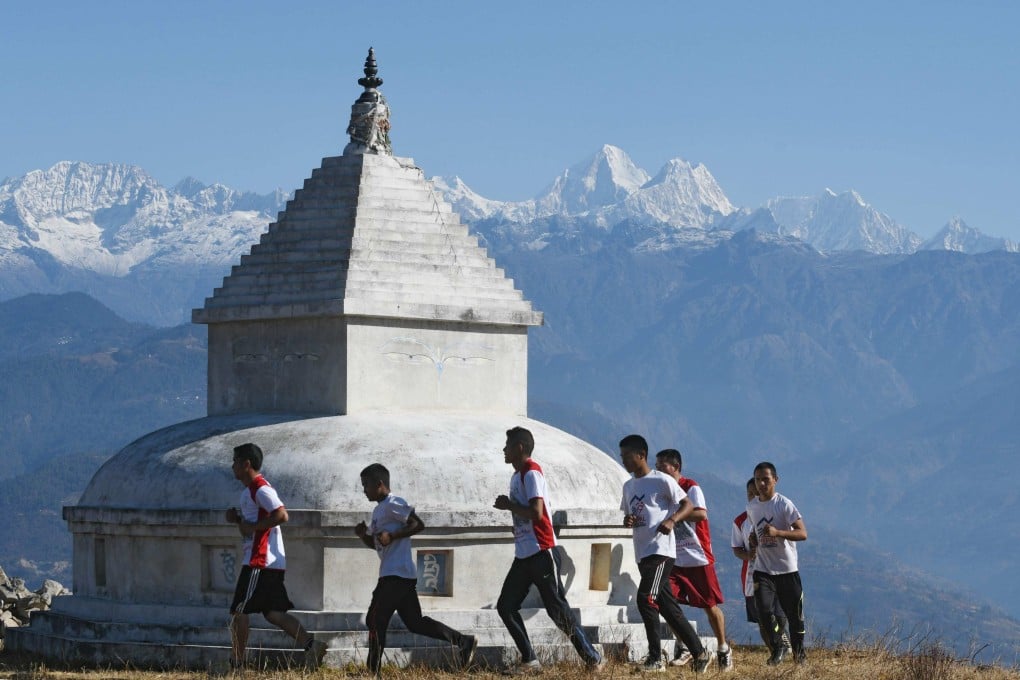Calls grow for Nepal to ditch secularism as India’s ruling BJP pushes its Hindu-nationalist agenda
- Nepal’s politics is witnessing a silent change – the emergence of Hindu nationalism and demands that the country become a Hindu state once again
- Civil society activists say Hindu-nationalist outfits with links to Modi’s Bharatiya Janata Party are funding the movement, according to a US report

Thousands of Nepalis gathered at the February event to back the cause, with several marches occurring across the country since.
Last month, just days before Nepal’s Prime Minister Pushpa Kamal Dahal, more popularly known as Prachanda, flew to New Delhi, key leaders of his Nepal Communist Party approached him with an unlikely memorandum – to hold a public referendum on whether Nepal must remain secular or return to being a Hindu state.
Within days, Dahal had made an unexpected stopover in the central Indian temple town of Ujjain and donned saffron-coloured Hindu robes, replete with sandalwood smeared on his forehead, before conducting temple ceremonies.
Many within Nepal were flummoxed by the sight of a lifelong communist and avowed secularist donning religious robes in Nepal’s parliament. The image caused such a stir that Dahal had to assure parliamentarians that he remained secular.
These might seem disparate events, but Nepal’s politics is witnessing a silent change with the emergence of Hindu nationalism and growing calls for the country to become a Hindu rashtra (nation).